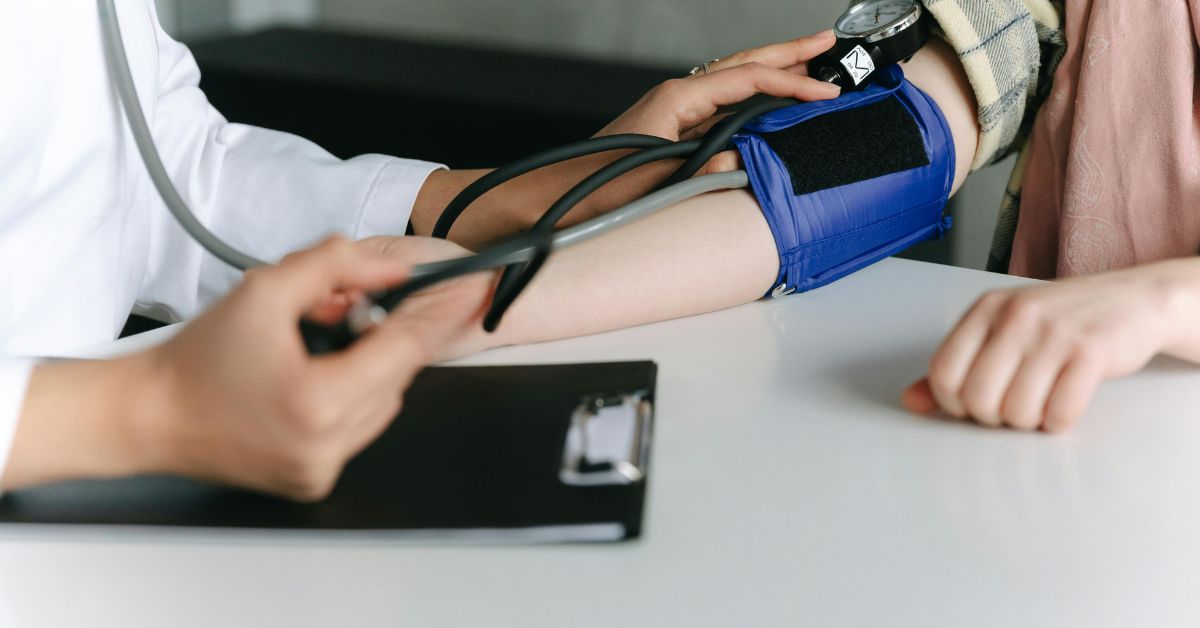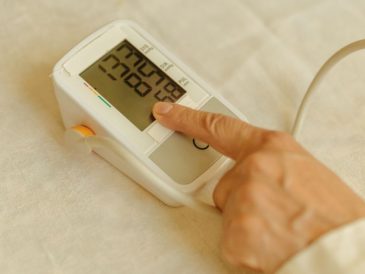I know the feeling. Maybe it’s a routine checkup, or maybe one day you just don’t feel right. Headaches? Lightheadedness? Maybe even fainting. Regardless of what led you to it, one day it happens: you go to the doctor and it’s confirmed – you have dangerously high blood pressure, and something’s gotta give.
I remember when I first got my pre-hypertension diagnosis. I had so many questions and to be honest, quite a bit of fear. At its worst, my blood pressure would sometimes hit readings like 180/100, and needless to say, it made me really worry about my health and my future.
Thankfully I had a great doctor who helped to set me at ease and let me know that by making changes to my lifestyle, I could reverse my chances of developing full-blown hypertension, and I’m happy to say that I did! At last check, my blood pressure reading was 111/69 – proof that it can be done! That’s why I’m so happy to be offering this space, full of tips and information on how to build fun, healthy habits that can help you manage your blood pressure. You’re going to see that it’s definitely possible to take control of your health and take good care of your heart. Most importantly, you’re becoming part of a supportive community that’s here to help you every step of the way!
Remember as we go through this journey that the information we provide here is not meant to replace the advice of your doctor or healthcare team. For example, if you’ve been prescribed medication, it’s important that you take it, and that you check in with your doctor for regular follow-up visits so that together, you can monitor your health and make adjustments where necessary.
Now let’s start at the very beginning and talk about high blood pressure – what it is, why it matters, and how understanding it can help you take control of your health.

What Is High Blood Pressure?
Sometimes known as hypertension, high blood pressure occurs when the force of your blood against your artery walls is consistently too high. Think of it like water flowing through a garden hose – if the pressure is too high for too long, it can cause damage to the hose, in this case, your arteries.
Blood pressure is measured in two numbers:
- Systolic (the top number): This measures the pressure when your heart beats and pushes blood through your arteries.
- Diastolic (the bottom number): This measures the pressure when your heart is at rest between beats.
A normal reading is typically around 120/80 mmHg. Hypertension is diagnosed when your systolic pressure (top number) is consistently 130 mmHg or higher, or your diastolic pressure (bottom number) is 80 mmHg or higher.
Why Does it Matter?
Hypertension is a leading risk factor for heart disease and preventable death, particularly here in sub-Saharan Africa. Unmanaged hypertension can put a strain on your heart and your blood vessels, and this increases your risk for serious health issues like heart attacks, stroke, and kidney problems.
It’s alarming, but it’s true.
The good news is that by making some key lifestyle changes – all while following your doctor’s advice – you can lower your blood pressure and significantly reduce these risks.
What Causes Hypertension?
There are many factors that contribute to high blood pressure, including:
- Genetics: Some people are more predisposed to hypertension due to their family history. (NB: genetic predisposition isn’t a death sentence, it’s a call to action!)
- Lifestyle: Unhealthy eating habits, lack of physical activity, excessive salt intake, and high stress levels are major contributors.
- Stress: Did I mention stress? Chronic stress triggers the release of hormones like cortisol and adrenaline, which can raise blood pressure over time.

Let’s Talk About Stress Baby
You might not think that your mental state has a big impact on your blood pressure, but it absolutely does. Chronic stress signals your nervous system to keep your body in a constant state of “fight or flight.” Over time, this state of high alert causes your average blood pressure to rise. That’s why managing your stress levels is key to lowering your blood pressure.
What’s Next?
We’re here to support you through this journey. We’ll keep posting tips and information, as well as simple tasks to help you take the first steps in managing your blood pressure. For now, I encourage you to reflect on your diagnosis and the reasons why you’re committed to making the changes needed for your health. Go ahead and write them down as a reminder. It’ll help you stay motivated and maintain perspective.
And remember – it can be done! You’re not in this alone, and together, we’re going to help you make lasting changes that benefit your heart and your life.
Your Next Step:
Take a moment to write down your current blood pressure, either from a recent doctor’s visit or by using a home blood pressure monitor. Tracking your numbers is the first step toward progress.
Until next time,
Elle
Disclaimer: The information provided here is for educational purposes only and is not intended to replace or serve as medical advice. Always consult with your healthcare provider or a qualified medical professional before making any changes to your treatment plan, lifestyle, or health routine, especially regarding your blood pressure or other medical conditions.

